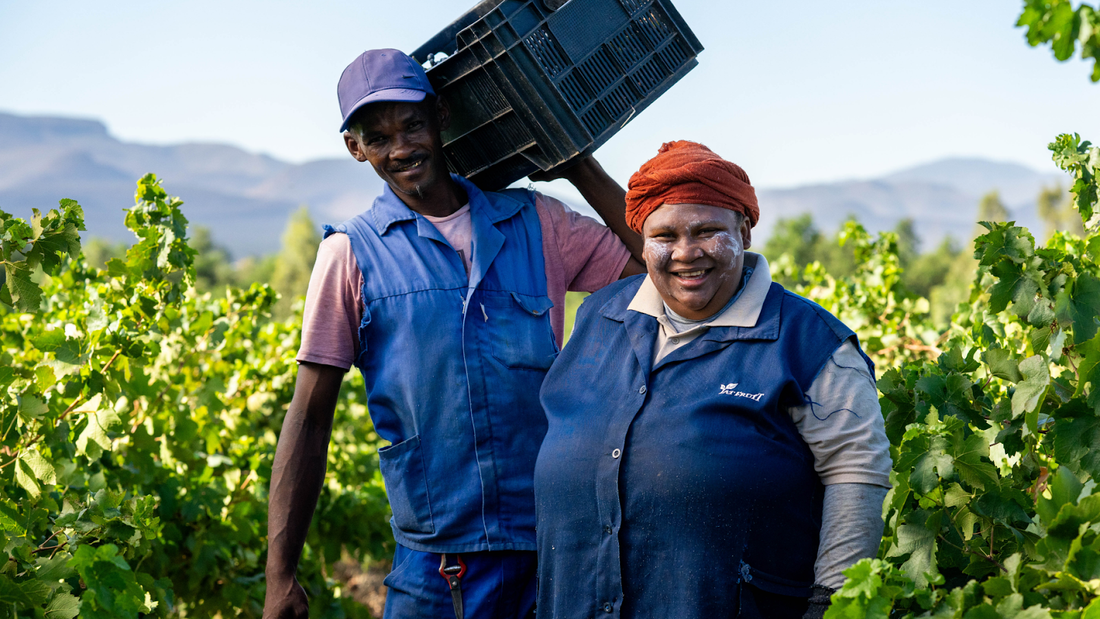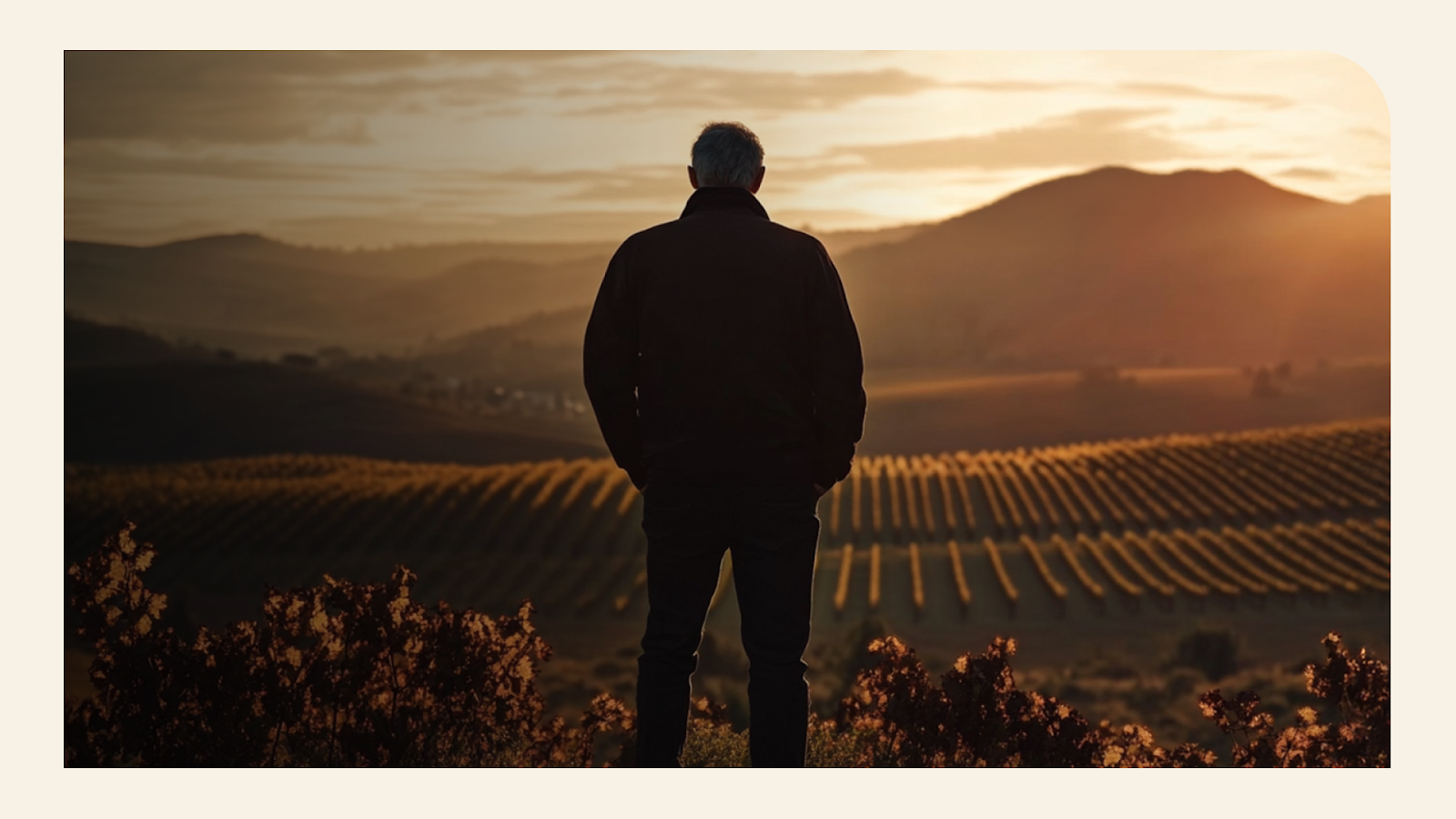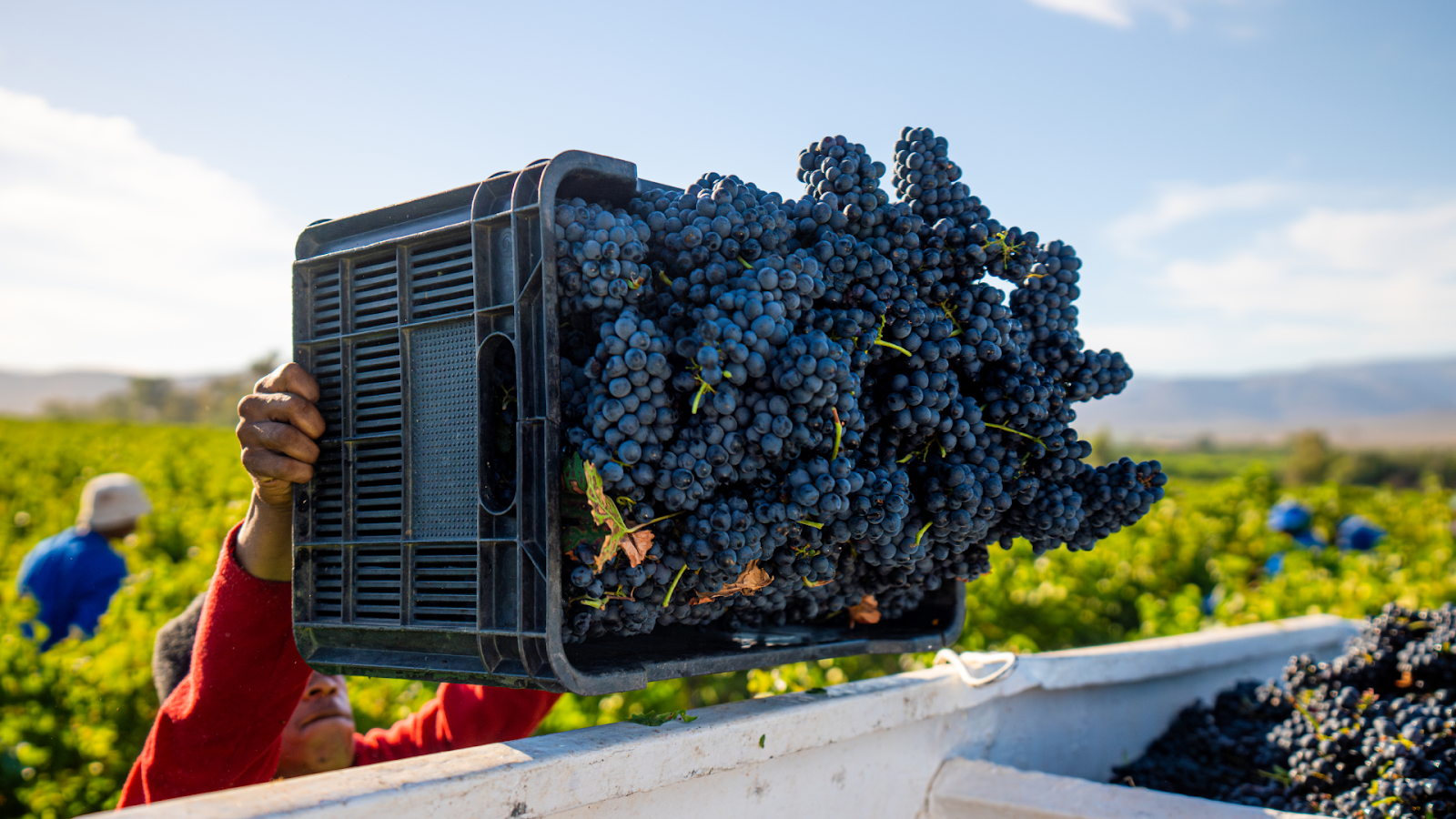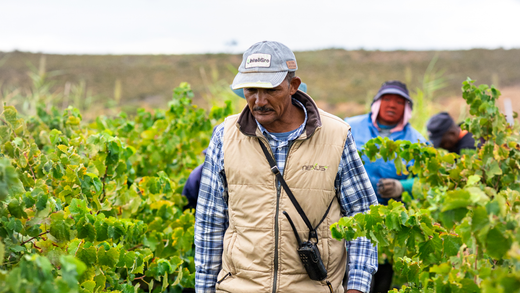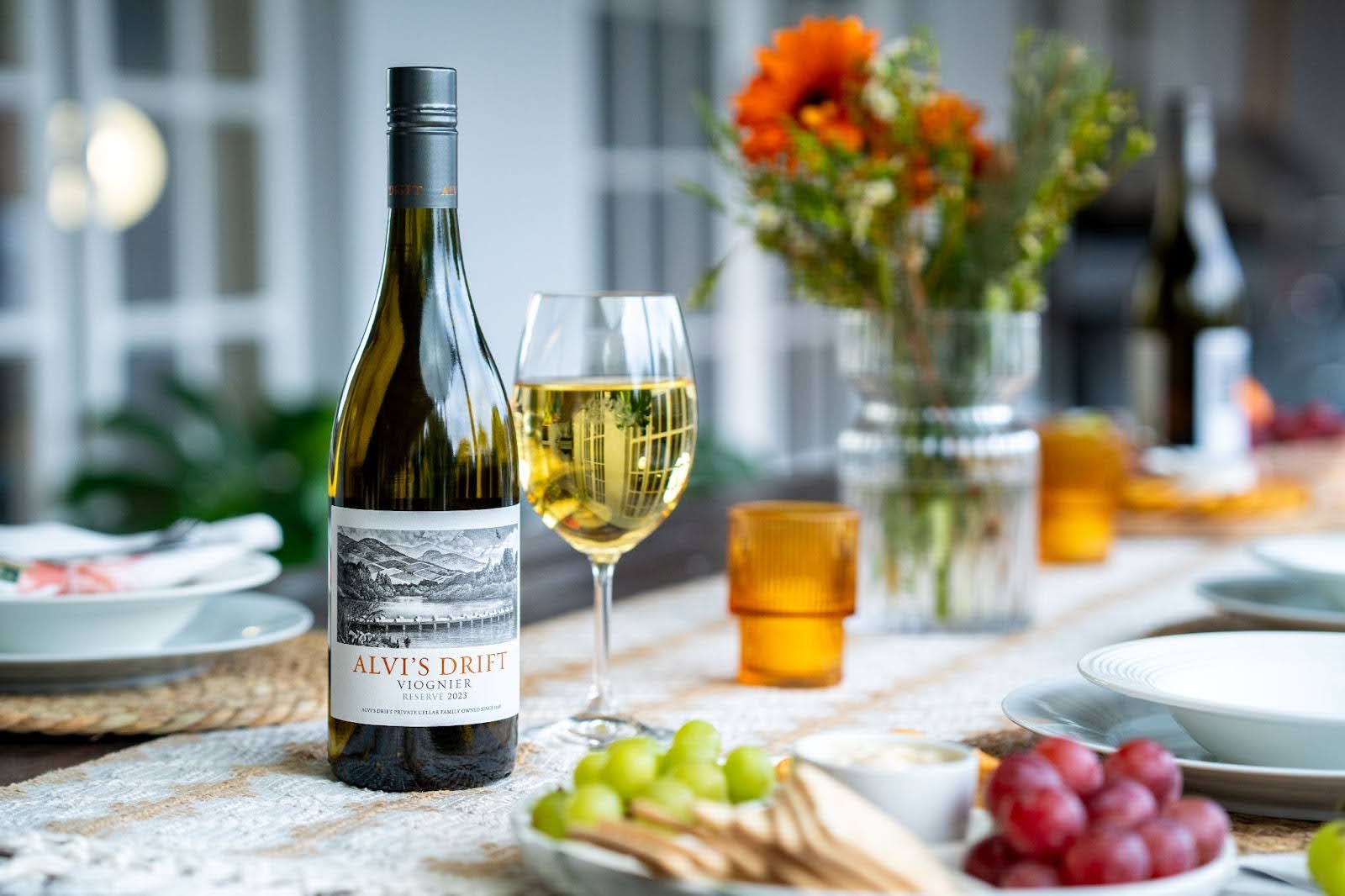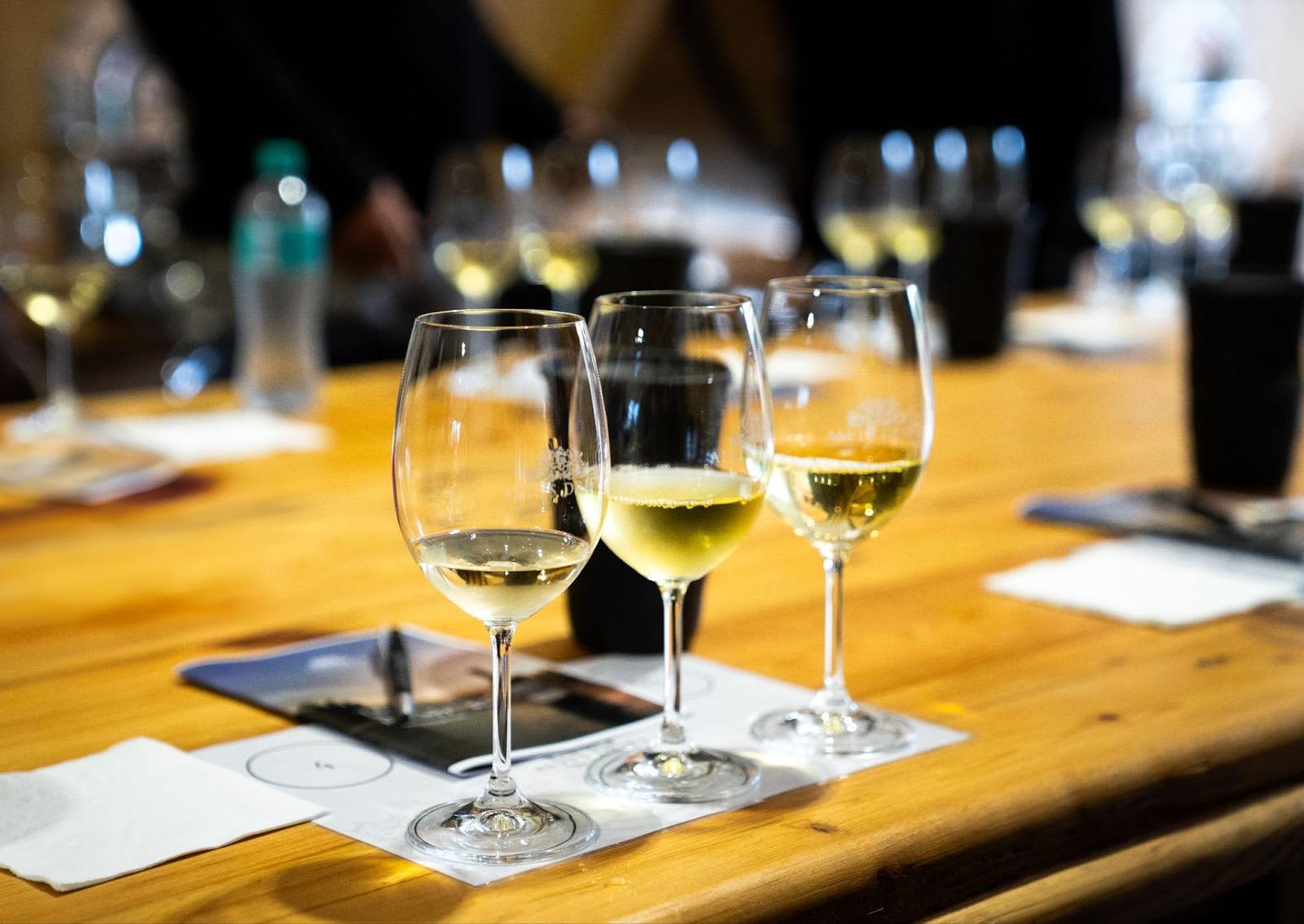“Once you start implementing sustainable practices and your employees buy into that, they become very positive. If people are enthusiastic about their work, it makes an enormous difference.” – Alvi van der Merwe
At Alvi’s Drift, our workforce is the heartbeat of our enterprise. Our employees are also at the core of our sustainability efforts, and their well-being is our greatest priority. As one of the largest employers in our area, we take our commitment to our workers and their families very seriously.
We recently spoke to our head winemaker Alvi, cellar master Riaan van der Merwe, and Sales & Marketing Manager Richard Bradfield to learn more about what sustainability means to them as employers.
Q: What value does Alvi’s Drift see in building strong employee relationships, and how does this align with your greater sustainability efforts?
Alvi: For us, as an employer, it makes sense to build as strong relationships as possible with our employees, and to really work together as a team. When everyone’s contribution is valued and recognised, people are motivated to help you in reaching your goals, and this includes our sustainability efforts.
You can’t motivate people by shouting at them, or ill-treating them. But by being positive, inclusive, and supportive, you’ll always be rewarded with someone’s best efforts.
You also need a special team of people to bring any vision to life. It’s not something you can ever do on your own. First, there must be buy-in from management, and then it filters down to staff on all the various levels.
Our sustainability goals here at Alvi’s Drift are no exception.
Riaan: When it comes to sustainability, our farm is almost like a little municipality. Our workers live here with their families and young children. The way I see it, sustainability is about looking after the people on the ground, doing the work, while also conserving our environment for generations to come.
You have to meet their needs to the best of your abilities, while also keeping an eye on the future. Depleting the earth and its resources would be a very short-sighted, foolish thing to do, because someone else always comes after you.

Q: What role does education play in Alvi’s Drift’s sustainability efforts?
Alvi: It plays a very big role, and offering our workers’ children a quality education is a huge priority for us.
My grandmother, Emmarentia, started the first school on our farm back in 1949, three generations ago.
It was an informal school on the farmhouse stoep, where she taught the farm’s dairy workers literacy skills. This gave them a big advantage, and their education made our dairy economically more sustainable than our competitors. This was back in 1967. Today, we’re the oldest independent dairy supplier to Pick ‘n Pay.

Q: What are your thoughts about Alvi’s Drift’s partnership with the Indaba Institute for Early Childhood Development?
Alvi: I am so excited about our partnership with the Indaba Institute and the incredible work they’re doing. When you consider the importance of early childhood development, especially how crucial the first five years of a child’s life are, the goals of the Indaba Foundation become even more inspiring.
Their mission to give every child the same opportunity as any other child in the world during those formative years is an incredible project, and we are so proud to be a part of it.
Q: Why is early childhood development such a priority for you at Alvi’s Drift?
Richard: Early childhood development is a significant challenge, not just for the South African wine industry or the Cape Winelands, but for our entire country. To truly prosper as a society, we need to create well-rounded individuals who are given fair, equitable opportunities to excel. If we’re going to change this community and the lives of our workers and their families for the better, we must start our efforts earlier, when the children are younger.
When I look at how the people behind the Indaba Institute have approached their work, I feel confident that their goals are within reach. They’ve taken learnings from countries like India, which face similar challenges, and developed a viable, implementable programme.
Our vision is to create a space here at Alvi’s Drift where the Indaba Institute can run their programmes and expand their research. We’re confident that the learnings will prove that early childhood development in South Africa can be within reach for all children, and that it is possible to change the future of our country in a single generation. I’m incredibly excited to be a part of this initiative.
“After reviewing several global systems, we realised that none provided true accountability or allowed us to track tangible change. By partnering with the Indaba Institute, we will be able to measure and monitor the impact of our efforts. We’re incredibly excited about this project’s potential and can’t wait to see the positive difference it will make.” – Richard Bradfield

Q: What are your thoughts on sustainability beyond just environmental aspects?
Richard: When we look at sustainability, we’re looking at more than just protecting the environment. It’s an important aspect, but it’s not everything. Sustainability at Alvi’s Drift encompasses so much more, including our selection of rootstocks, soil management, water conservation efforts, and even the types of grapes we choose to cultivate here.
As winemakers, we need to go further than just being responsible; we need to actively regenerate and make things better. That’s why we’re giving a large portion of the farm back to nature, allowing natural fauna and flora to return and flourish. My estimate is that about 80-90% of this farm is regenerative.
Q: How has the use of solar energy supported your sustainability efforts at Alvi’s Drift?
Riaan: For an enterprise like ours, cooling our grapes and regulating temperatures of grape juice and wine, especially around harvest time, is of the utmost importance. A big solar plant was established in our area some years ago, and we draw power from it. This has helped us enormously in our winemaking operations.
When it comes to solar energy, it’s not as simple as flipping a switch. On any given day, it takes a lot of planning to decide what takes priority when distributing our solar energy supply.
All in all, our shift to solar has been a very positive move. There are a lot of calculations involved, and it forces you to work in a more focused way, planning efficiency and operations quite a bit in advance.
Of course, solar energy is much more environmentally friendly than fossil fuels, which helps to conserve our planet for future generations.
“At Alvi’s Drift, we believe in holding ourselves accountable. We’re transparent in our actions and directly involved in schools, housing, and efforts to eliminate wastage in our systems. We’re dedicated to removing anything that doesn’t add value to our process. We need to know that we’re making a difference and that we can measure our progress, in order to be accountable to our workers and customers.” – Richard Bradfield
Q: Why is economic viability such an essential part of your sustainability efforts at Alvi’s Drift?
Richard: To offer the best support to our worker community, we must remain economically viable as a business, and this then forms part of our sustainability efforts.
At Alvi’s Drift, we produce the best wine possible, and then we ensure it reaches the market at a fair price. We’re transparent in everything we do, and sometimes that means having difficult conversations with retailers and consumers about the true cost of our projects, and our environmental and social efforts. But that cost reflects fair compensation for the products we offer, which in turn allows us to support our employees and their families as best we can.

Q: What is the Integrated Production of Wine (IPW) initiative, and how does Alvi’s Drift contribute to it?
Riaan: Integrated Production of Wine (IPW) is an environmental sustainability scheme established by our country’s wine industry in 1998.
What I like about this initiative is that it came from the wine industry itself. It was agreed among roleplayers that we needed to move in a greener direction, with more regard for our planet and its resources.
There are three components at Alvi’s Drift that specifically relate to the IPW: the farming operation itself, our cellar, and then the bottling and packaging aspects.
IPW asks that we look at things such as our water usage, as well as our waste and chemical management. Being an IPW member meant adjusting our winery’s processes to achieve our objectives in a way that does not harm the environment.
Q: How is Alvi’s Drift working to reduce its carbon footprint, particularly in terms of packaging?
Richard: When it comes to reducing our carbon footprint and helping our customers do the same, we must look at packaging. How much packaging do we throw away as consumers, and what strain does that place on the environment? As a wine producer, we have started the transition to ultra-lightweight glass bottles. From 2025, to help protect our planet and its resources, all our Signature, 221, and Reserve range wines will be bottled in ultra-lightweight glass bottles.
“Our sustainability efforts are not just plans on paper; it’s something we live every day here at Alvi’s Drift. It allows us to create products with integrity. This inspires our entire team, and it’s something we’re incredibly proud of.” – Alvi van der Merwe
Q: What role does your WIETA certification play in supporting your wine farm’s sustainability efforts?
Riaan: WIETA is described as a ‘multi-stakeholder organisation, representing the interests of trade unions, civil society groups, wine brands, and their producers.’ Our WIETA certification relates to various interest groups, including labour unions, farm owners, and other role players in the wine industry. WIETA ensures the protection of the rights and interests of all these stakeholders. At Alvi’s Drift, our biggest stakeholders are our workers, followed by our cellar operations, and, finally, our brand.
Explore Our World-Class Wines & Taste What’s Possible With Alvi’s Drift
At Alvi’s Drift, sustainability is more than just an initiative – it’s a commitment and an ethos we live every day. Here, we strive to produce wines that reflect our dedication to protecting our planet, empowering our workforce, supporting our greater community, and ensuring a sustainable future for generations to come.
